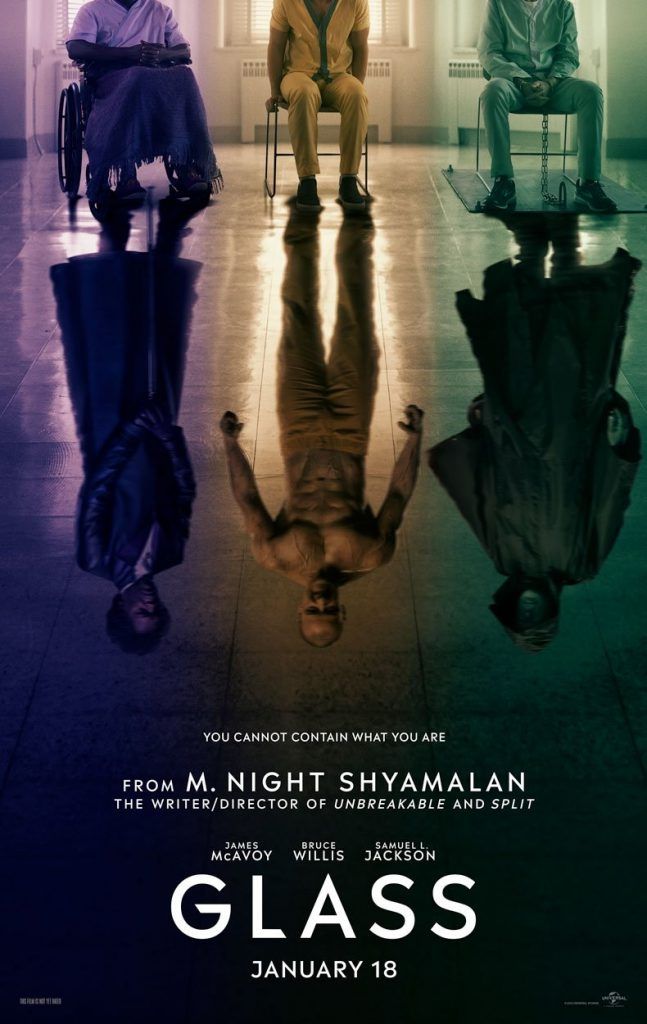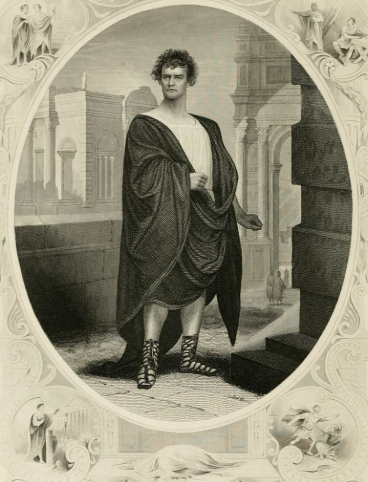"Glass" Wraps Up Shyamalan Trilogy With Few Delights

Popular consensus has not been kind to director M. Night Shyamalan — just look to the truly baffling “The Last Airbender” to confirm its hostility. One of the most distinctive voices in American popular film, Shyamalan has long withered under the public image of a thwarted prodigy, perhaps unfairly.
His failures are bold and blatant, if only because his ambitions share the same qualities. Never one to completely upend the genres that he navigates with surprising dexterity, Shyamalan, nevertheless, always has had something to say and images to show, which culminate in the grand twists that have come to define his reputation. As his career progressed however, earnestness, provocation, puzzling narrative sensibilities and genuine missteps created a mixture unpleasant to most, and Shyamalan fell from his heights. Ever the volatile artist, Shyamalan transforms his image once more. “Glass” comes to theaters at this bizarre time in Shyamalan’s bizarre career. The 2010s saw critical opinion sway once more toward the radiant expectations many once held for the filmmaker, who had been hailed as “the next Spielberg.”
Films such as “The Visit” and “Split” built a persuasive case for the Shyamalan-renaissance, and “Glass” seemed to be coming closer to cementing the cold fact of the filmmaker’s return. The greatest twist, it turned out, was still lying in waiting. “Glass” may perhaps be the only Shyamalan film to not fully attain Shyamalan’s vision. The film is the final chapter in the “Unbreakable” trilogy, one that began with the titular film in 2000 and continued with “Split” in 2016. Of all his forays into different genres, Shyamalan’s early contribution to the still niche category of superhero film proved peerless and prophetic. “Unbreakable” was the superhero origin story before the form became formula. In this film, David Dunn (Bruce Willis) becomes acquainted with his unbreakable body after he turns out to be the sole survivor of a lethal train accident.
Under the shifty guidance of the contrastingly frail-boned comic aficionado Elijah Price (Samuel L. Jackson), he overcomes his skepticism toward his powers. More importantly, he realizes how much he wants to be special after a lifetime of detours and disillusionments. “Split” turned its attention to the supervillain Kevin Wendell Crumb (James McAvoy) whose own awakening as a self-styled, dissociative Beast set to avenge the abused and traumatized of the world betrayed his far less beastly need to situate oneself in the narrative of the extraordinary. Both understand and undress the childish aspirations of comics in ways that a generation of the genre has often obscured in its marketing to embarrassed adults. If we are broken, our minds must compensate until we are unbreakable, even if that means we split ourselves into less and less justifiable counterparts. And like a child that has shattered something precious, we will hide those fractures under the panels of our fashionable stories about ourselves.
The excitement of “Glass” was to see Dunn’s and Crumb’s powers and pains converge in a final spectacle; the disappointment is the film’s own recognition of the trilogy’s narrative complexity and its submission to the pressures that have forced the film to simplify itself. Too much of “Glass” lives out the most banal meaning of its title. It is too concerned with communicating the status quo of the stories and characters that have come before, reflecting and repeating without reframing.
In fairness, 19 years elapsed between “Unbreakable” and “Glass,” and simply put, people forget the past. They instead remember the present, the contagious techniques of the Marvel machine that dictate the most profitable ways to construct superheroes and their worlds: overeager accommodation towards those new to the franchise and vulgar continuity in look, sound and texture. In a box office that rewards the most effortless insinuations of a shared cinematic universe, “Glass” is cracked by forces within and without. The conservatism of “Glass” takes up an unfortunate two-thirds of its runtime, during which we see new flashbacks retelling old motivations and ferociously acted outbursts of emotion overdress familiar issues.
Combined, these moments hamper the spirit of experiment so expected in Shyamalan’s work, and because of them, “Glass” slots itself fairly easily as the weakest of the trilogy. But that last third, when “Glass” brings its own original images to the sequence, is remarkable. It places the movie and its sibling films at the vanguard of the superhero genre, 19 years after “Unbreakable’s” inspirational debut.
The premise of “Glass” finds the trilogy’s hero and villain in a rehabilitation center led by Dr. Ellie Staple (Sarah Paulson), who confronts each with the subtext of their own films. Their powers are so tied to their pain as to be indistinguishable; her hypothesis is that they have imagined themselves too powerful to escape their weakness. Under her project, neither Dunn’s nor Crumb’s powers can suffice as their sense of self withers away, back into the dangerously sad and ordinary. The true adversary lies instead in Dunn’s former guide Price, whose hurtful playground moniker “Mr. Glass” provides the title of the film.
A comic aficionado and a fanatical believer in super-beings, he plans to stage a breakout and a grand battle between Dunn and Crumb in the heart of the city to prove to the world and himself that his self-made comic book plot is true. What is fascinating is the true battle behind the scenes. “Glass” is not about the battle between comic book characters but the battle between authors.
Premised on an indecisive agnosticism regarding superpowers, both Dunn and Crumb, undisputed heroes and villains of their solo films, take on the aura of the fictional characters, their very ontological states vulnerable to the stories spun by Glass, Staple and, as perhaps the ultimate twist of the film would suggest, us the viewers.
Price revealingly slips the conceit of the film some ways into his plot, which is in turn the movie’s plot: “this is not a crossover, but an origin story.” It is not the conclusion, but rather the true beginning of Dunn and Crumb, not as untroubled “people” living their unquestionably super-lives, but as “characters” in a superhero film.
In doing so, “Glass” charts territory unknown not only to the trilogy but to the entire genre; it’s a film not about superheroes but about superhero film, the act of witnessing what one believes to be superheroism and the value of these narratives to a society filled with powerless Dunns and Crumbs.




Comments ()